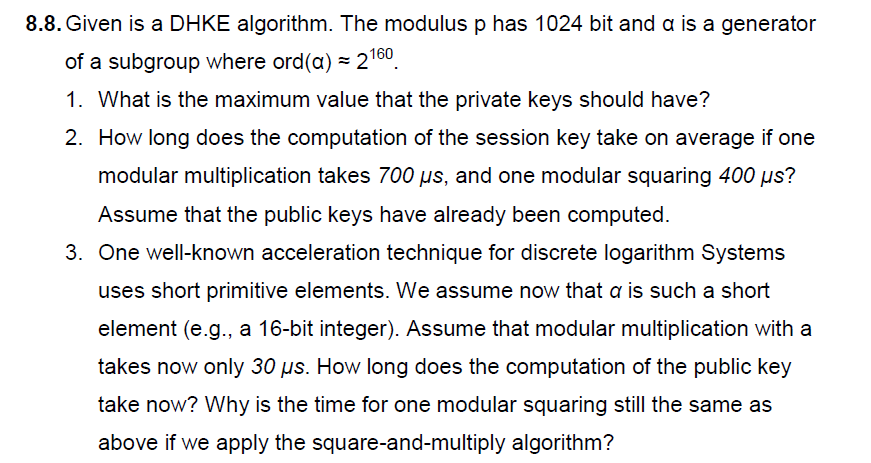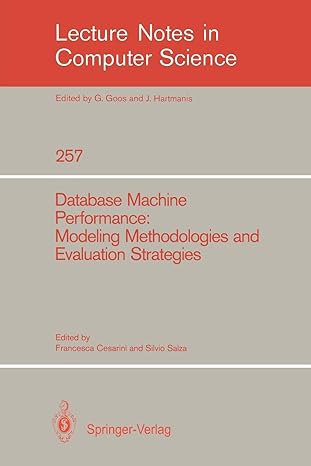Question
8.8. Given is a DHKE algorithm. The modulus p has 1024 bit and ? is a generator of a subgroup where ord(?) ? 2160. 1.
8.8. Given is a DHKE algorithm. The modulus p has 1024 bit and ? is a generator of a subgroup where ord(?) ? 2160. 1. What is the maximum value that the private keys should have? 2. How long does the computation of the session key take on average if one modular multiplication takes 700 ?s, and one modular squaring 400 ?s? Assume that the public keys have already been computed. 3. One well-known acceleration technique for discrete logarithm Systems uses short primitive elements. We assume now that ? is such a short element (e.g., a 16-bit integer). Assume that modular multiplication with a takes now only 30 ?s. How long does the computation of the public key take now? Why is the time for one modular squaring still the same as above if we apply the square-and-multiply algorithm?

Step by Step Solution
There are 3 Steps involved in it
Step: 1

Get Instant Access to Expert-Tailored Solutions
See step-by-step solutions with expert insights and AI powered tools for academic success
Step: 2

Step: 3

Ace Your Homework with AI
Get the answers you need in no time with our AI-driven, step-by-step assistance
Get Started


